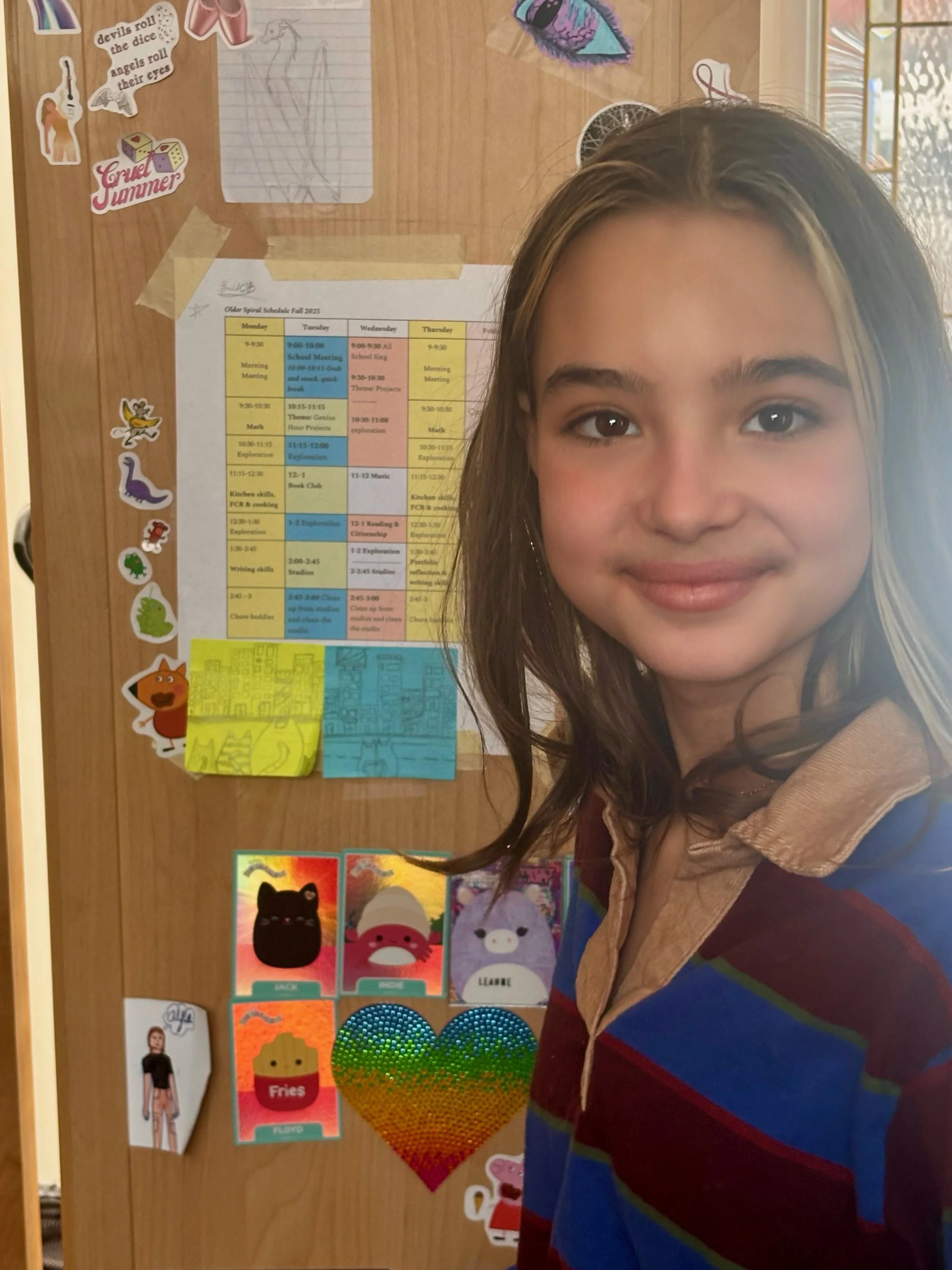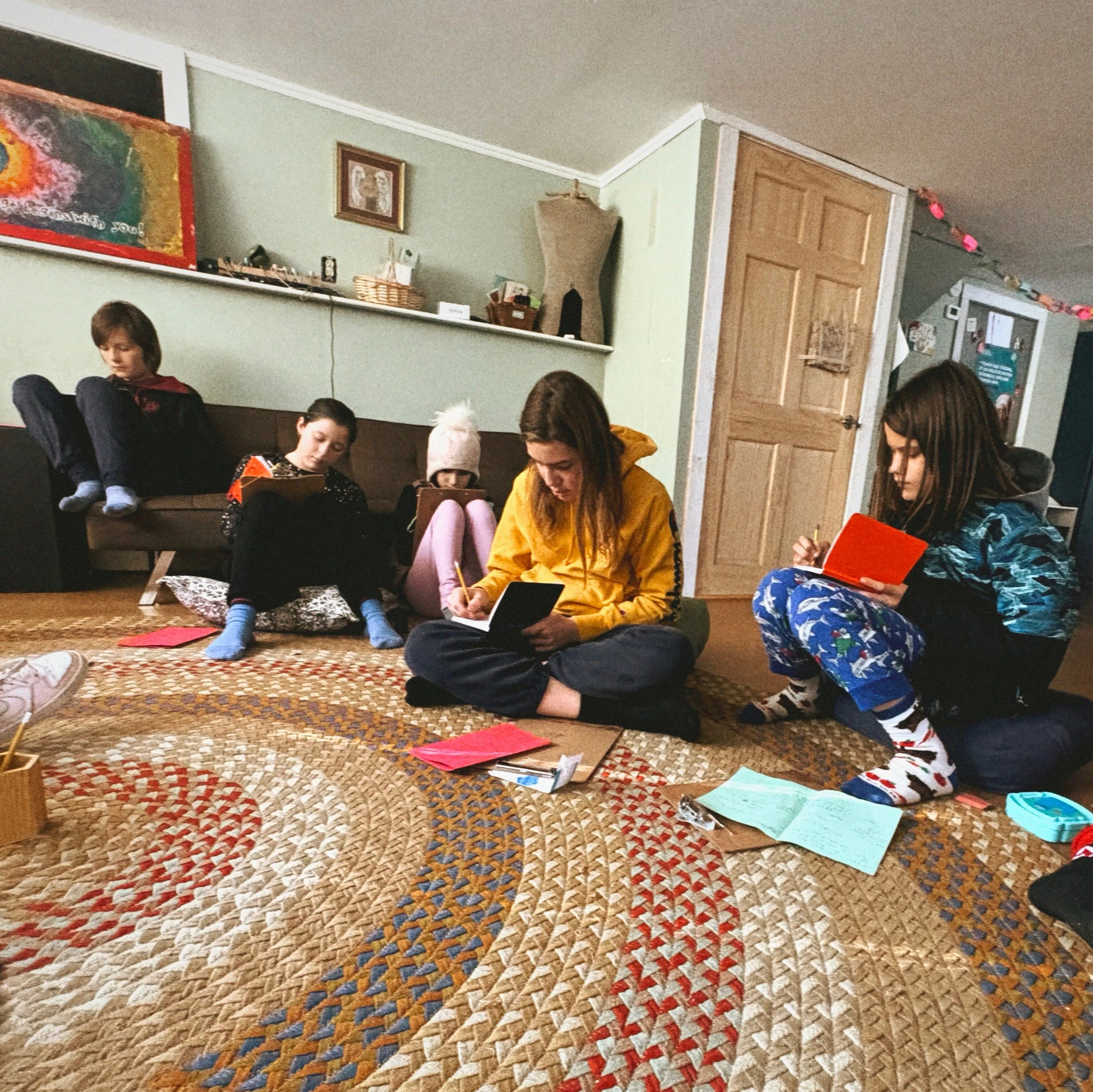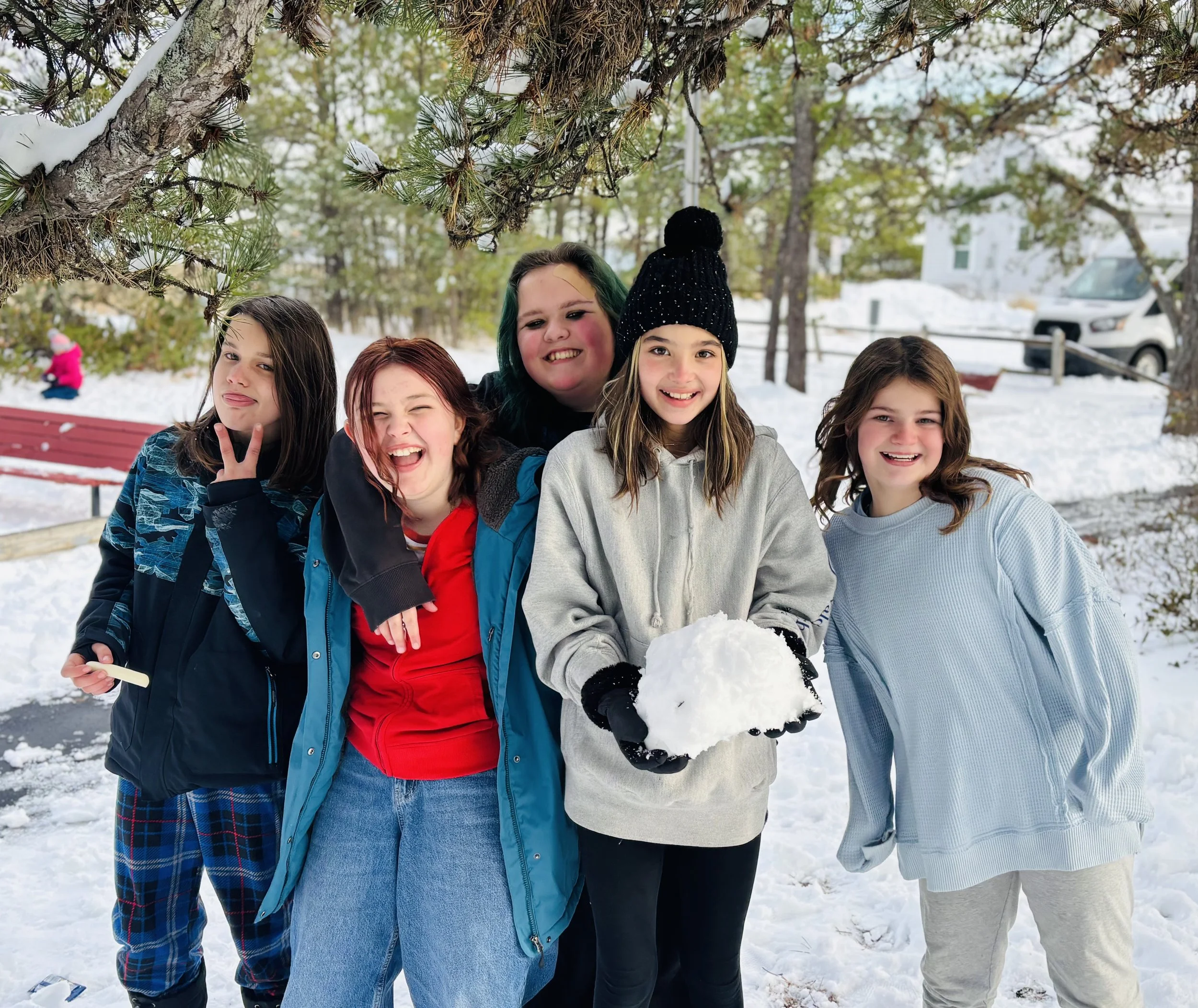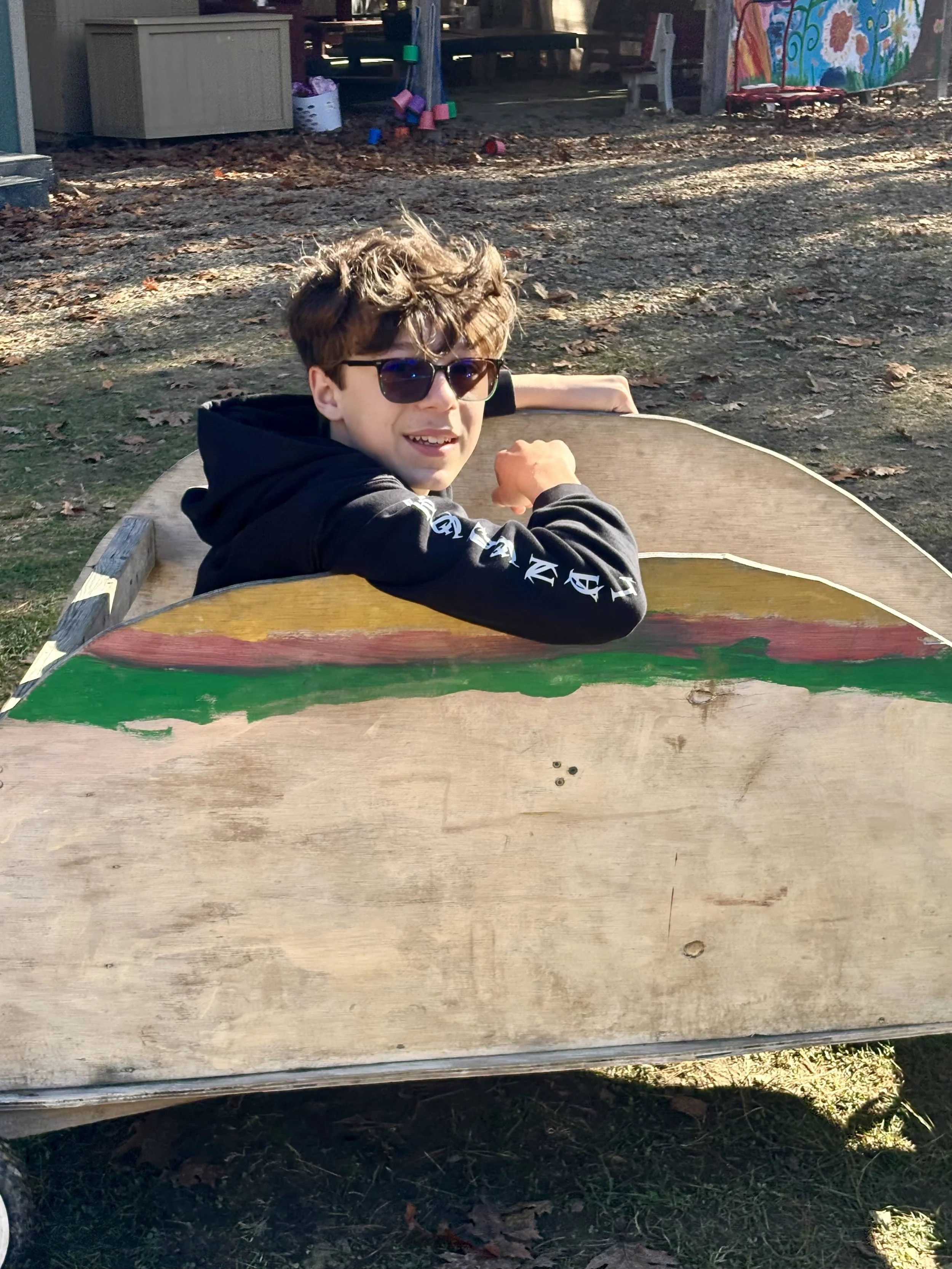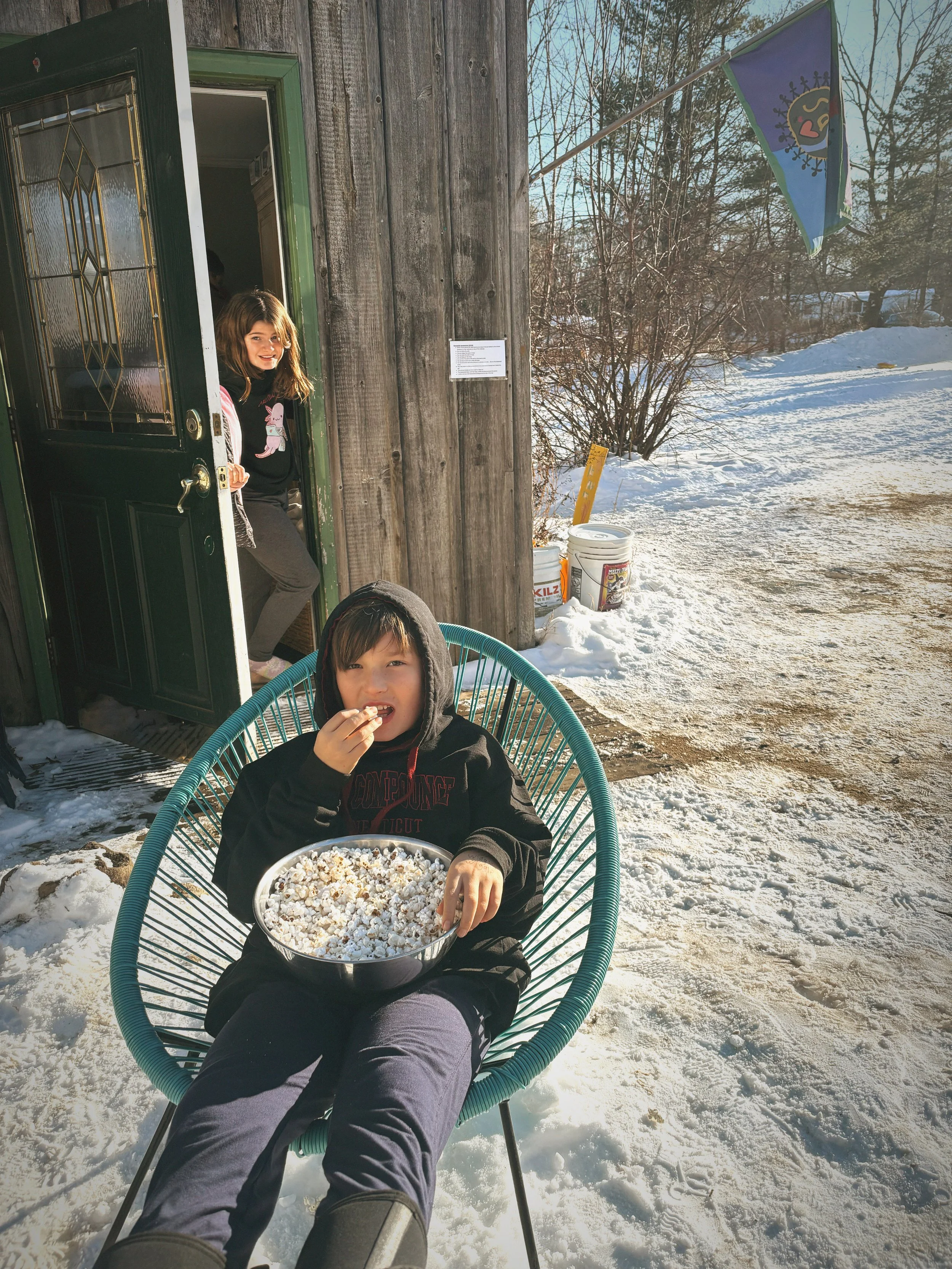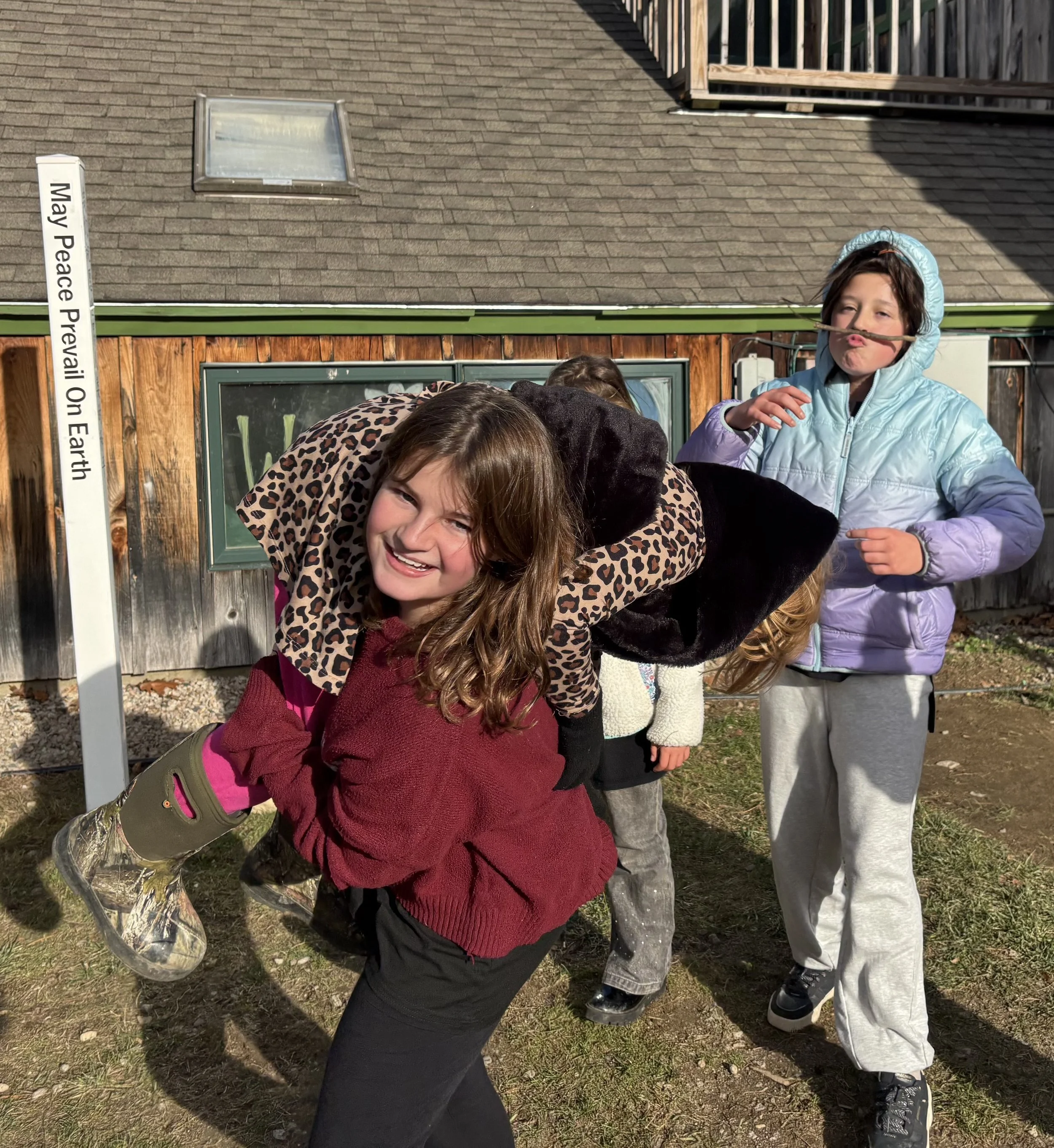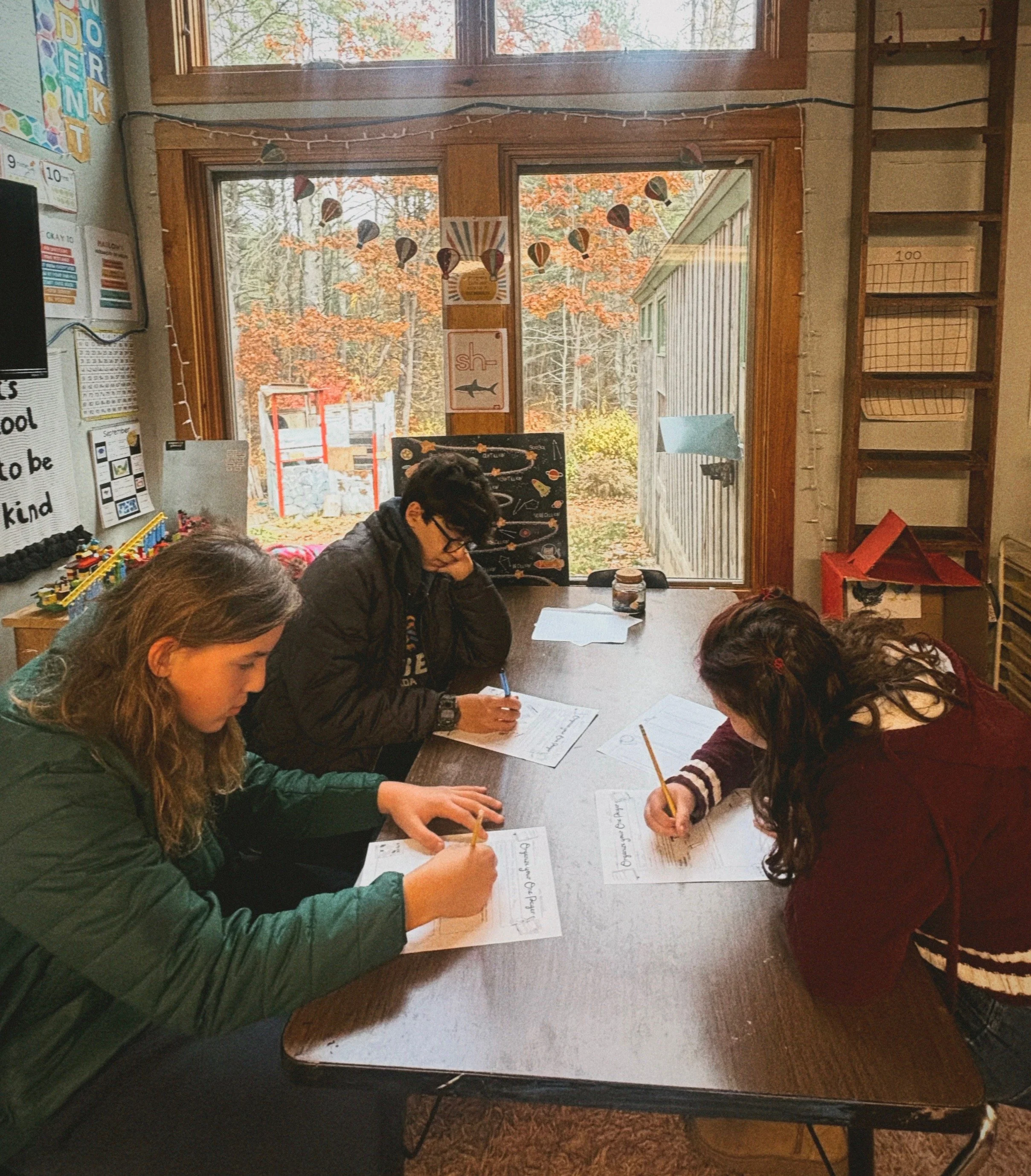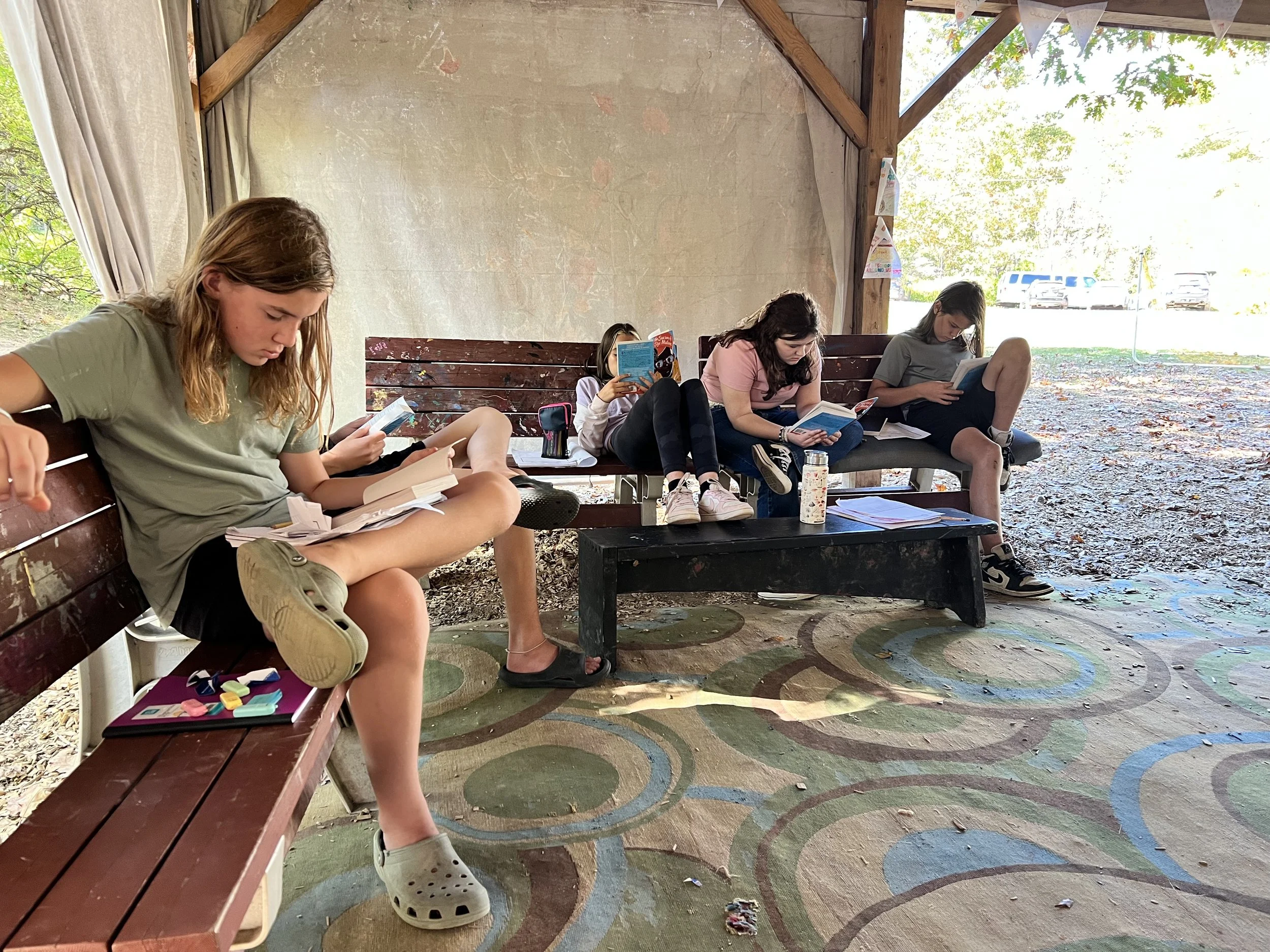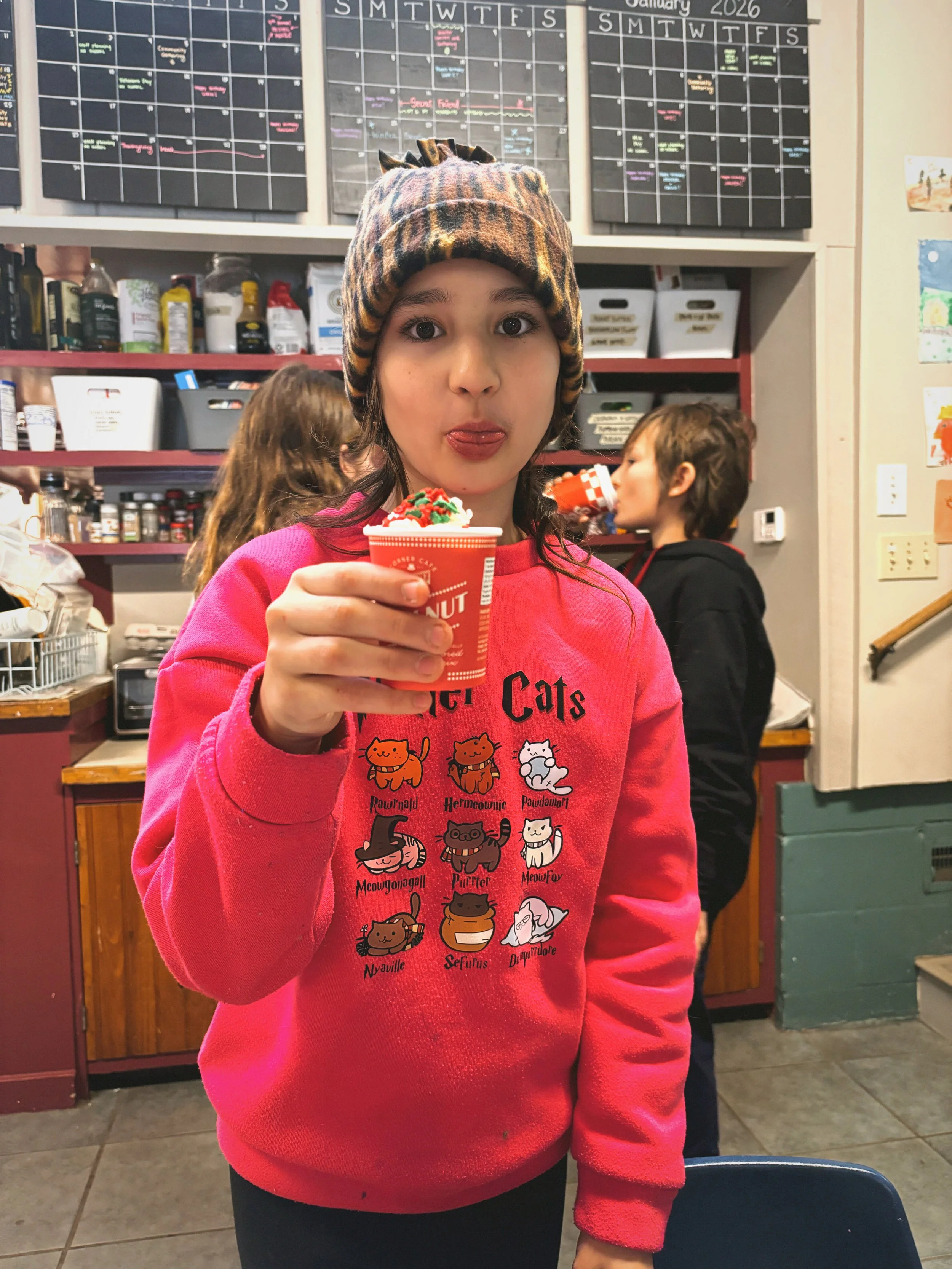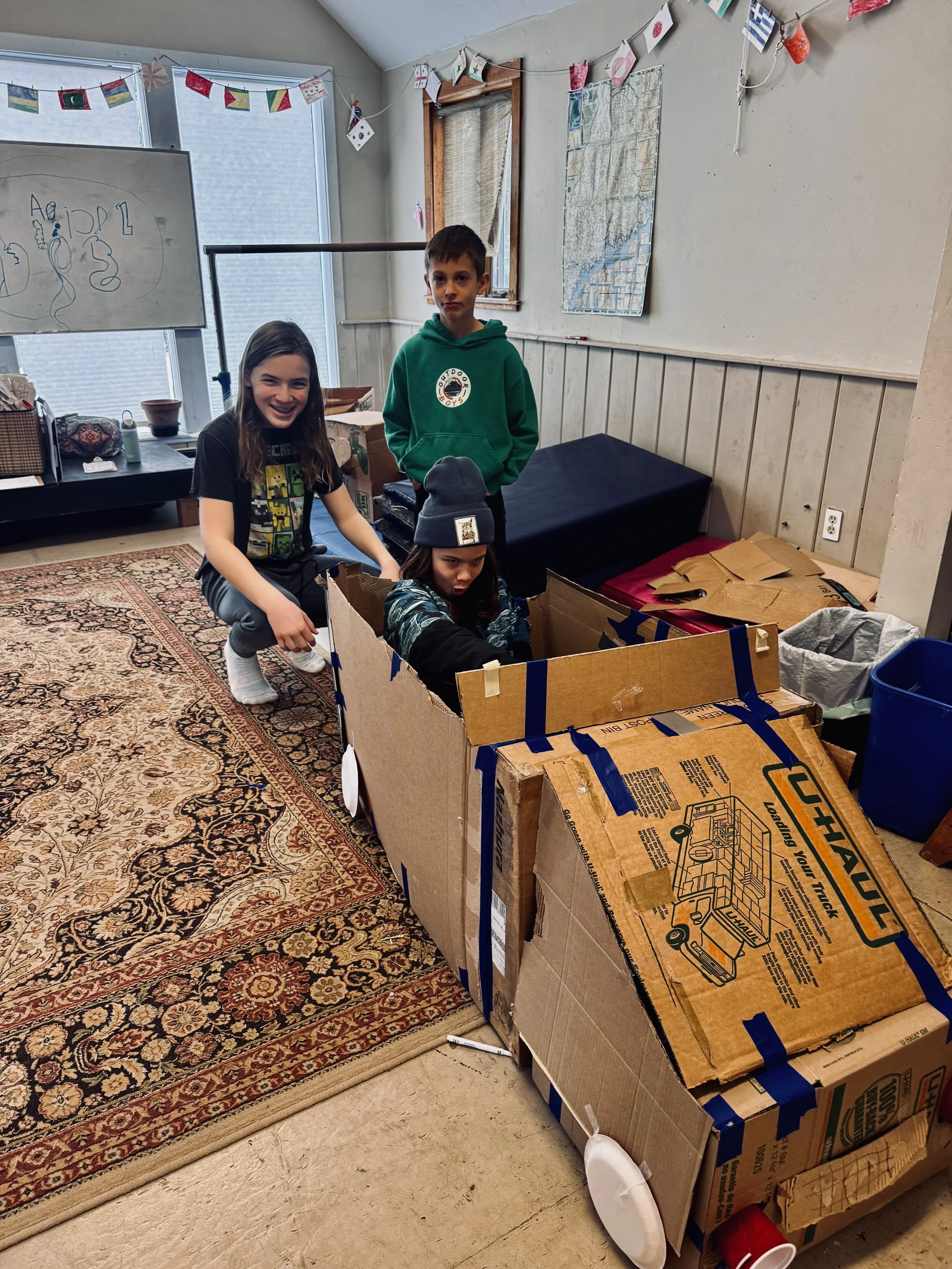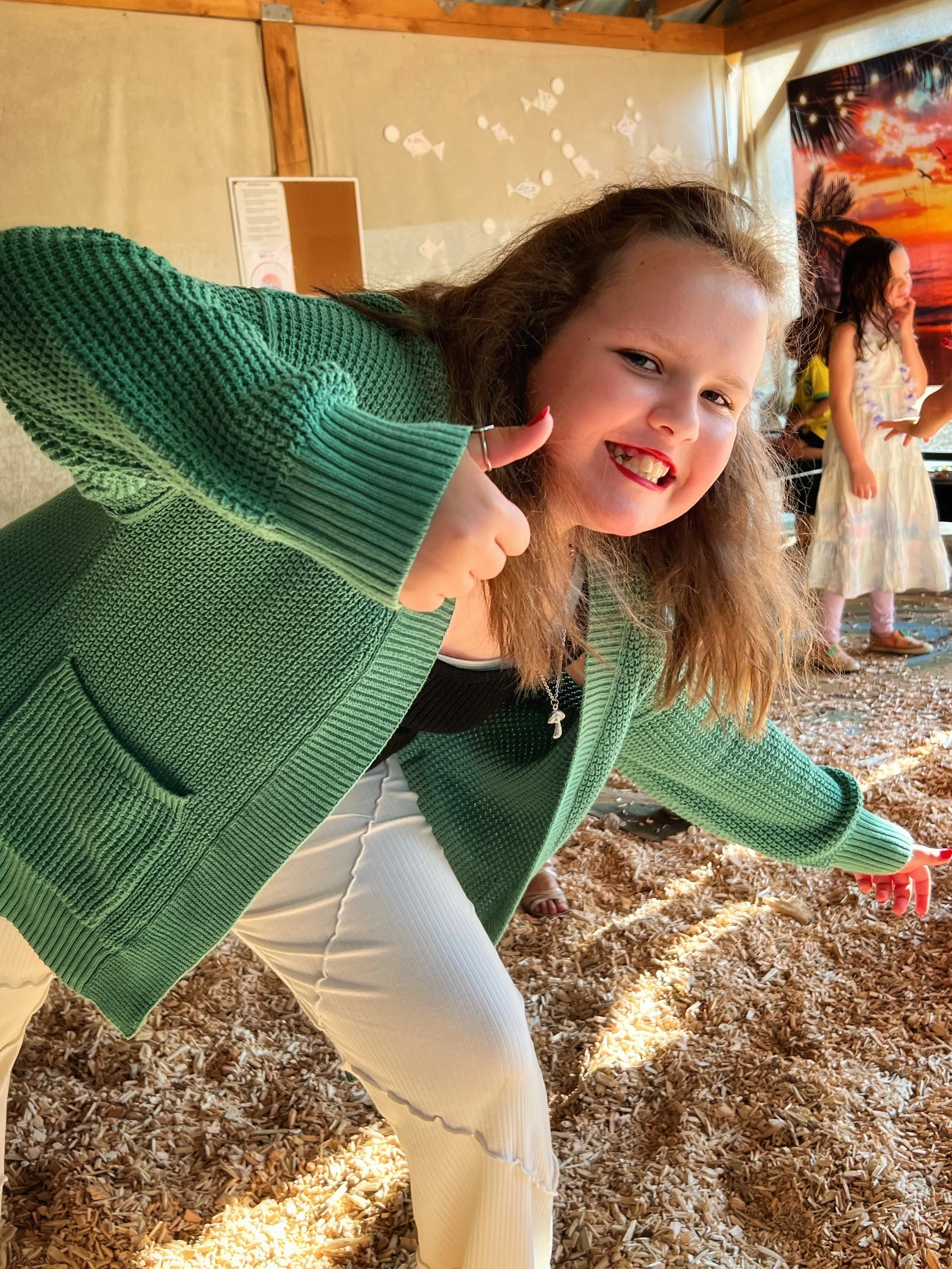The Older Spiral, ages 10 - 14
A focus on individual identity, self-expression and ethics
Older Spiral: Supporting Social-Emotional Growth
At School Around Us, we recognize that the social-emotional development of our Older Spiral learners is just as vital as their academic growth. During this dynamic stage of life, learners are exploring who they are, how they relate to others, and how they fit into the world around them.
Friendship, Identity & Connection
Older Spiral learners are deeply social and seek strong, affirming friendships. Having at least one trusted friend—someone to count on during and after the school day—can make all the difference in how they experience learning and life. But building and maintaining friendships isn’t always easy. These years bring lessons in loyalty, trust, inclusion, and navigating the complex dynamics of group relationships. Learning how to be a good friend—and how to repair relationships when things go wrong—is central to this developmental stage.
As they question and shape their identities, young people naturally look to their peers for validation and support. They’re taking social and emotional risks daily, and while that can sometimes lead to conflict or emotional ups and downs, it’s also a powerful opportunity for growth. We create space for learners to reflect, take ownership, and build resilience in a supportive community.
Building Empathy & Perspective
This is also a time when empathy begins to deepen. Older Spiral learners start to see beyond their immediate experiences and become aware of inequality, privilege, and diverse ways of life. Exposure to stories, cultures, and communities beyond their own helps them gain perspective and a greater sense of justice and compassion. At School Around Us, we support learners in expanding their worldview while staying grounded in their own evolving sense of self.
Emotional Awareness & Coping Skills
Emotional intensity is a hallmark of this age. As learners explore who they are, their experiences can sometimes feel overwhelming or even world-ending. Many young people face anxiety or worry as part of this growth—and that’s completely normal. What matters is helping them understand those feelings, identify their triggers, and build healthy coping strategies.
Rather than shielding them from every challenge, we guide them in navigating difficulties with courage and self-awareness. Developing emotional resilience—learning to face fears, process conflict, and bounce back—is essential for a fulfilling life.
Looking Outward, Being Accountable
Although this phase often centers on the self, we support learners in gradually shifting their gaze outward. We encourage them to reflect on how their choices impact others and to take responsibility for their actions within their friendships, families, and the wider community. Accountability, empathy, and emotional intelligence grow hand-in-hand—and we’re here to guide that process every step of the way.
Our Approach to Academics
At School Around Us, academics are woven into meaningful, real-life experiences that spark curiosity, creativity, and critical thinking. We believe learning happens best when it’s relevant, engaging, and connected to the world around us. Here’s how we approach core academic areas:
📚 Reading & Critical Thinking
Reading is deeply integrated into literature-based, cross-disciplinary studies. Our learners explore texts that often connect to history, science, or social themes, allowing them to develop both reading comprehension and critical analysis skills.
Student-led Book Clubs are a favorite in our older spiral. Middle schoolers choose a book they love, guide the group through it, and design thoughtful lessons or activities. Leading these discussions encourages deeper engagement with the text and builds confidence, leadership, and analytical skills.
✍️ Writing with Purpose
Writing is embedded throughout our curriculum. Learners journal, reflect, and respond to literature through thematic questions and creative writing prompts. Full-time learners also participate in writing classes tailored to their interests and needs—whether that means storytelling, persuasive writing, or research-based essays.
➗ Math Through Real-Life Projects
Our math instruction blends hands-on projects with individual skill-building. We believe that when learners see the why behind math, they’re more motivated to dive in.
A great example is our recent Floor Carrot Restaurant project, where learners opened and operated a pop-up restaurant at school. Through this immersive experience, they explored money management, budgeting, measurement, following recipes, planning, organization, and the basics of running a business. They even served meals to fellow students, staff, and visiting parents—making it a fun and powerful community-building event.
In addition to project-based learning, learners also practice foundational math skills each week through small group classes, online tools, or workbook activities tailored to their individual levels—whether they’re mastering multiplication or diving into algebra.
At School Around Us, academics aren’t separate from life—they’re a part of it. By engaging learners in real-world contexts and honoring their unique pace and interests, we help them build the skills they need to thrive both in and out of the classroom.
What do Middle Schoolers need?
Collaboration, voice & choice in learning, project-based educational experiences, space for social-emotional learning and growth, free time to PLAY, peer connection, strong relationships, and a sense of belonging to a community........to name just a few things! At School Around Us, we have always held these values within our Holistic philosophy of Education. Our middle schoolers thrive in the space we give them as individuals and in the caring relationships they build with the adults in our community.
Science is there to back up the desire for a new era of educational programming for our young people. Why isn't it happening in most public schools? Societal concerns for testing and performance overtake what we know to be true - it's proven through research! (See the below-referenced article) We believe we should relax and let our young people BE KIDS - give them the chance to explore, to create, and to learn by doing (mistakes included!) - to BELONG. This gives them solid footing for a lifetime of unlimited learning!
Check out this article published in August 2021 entitled “Middle School’s Moment: What the Science tells us about improving the Middle Grades”. https://hechingerreport.org/middle-schools-moment-what-the-science-tells-us-about-improving-the-middle-grades/
